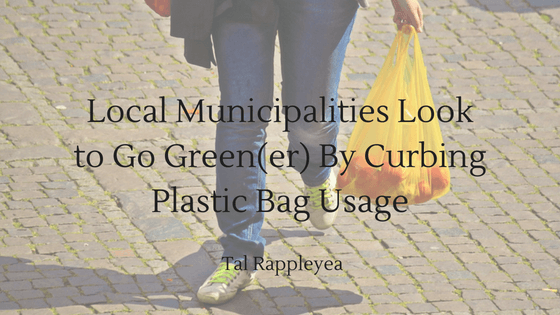Sustainability and environmental protection are ongoing topics of conversation and debate in every level of government. One of the current hot topics for municipalities in the New York and New Jersey area is the continued usage of one-use plastic (and paper) bags in grocery stores.
While many of these bags tout small sayings encouraging users to recycle them after use, the reality is that those bags contribute to a $12.5 million bill that the city of New York pays to transport waste to landfills. The City Council in New York City recently voted on a bill that proposed charging a 5 cents fee for each one-use bag (paper or plastic). The final votes tally of 28 to 20 landed in favor of the nickel charge, and it will be going into effect on October 1st.
The same issue is being addressed across the river in New Jersey, where Assemblywoman Grace Spencer, is currently pushing a bill to have the same 5 cents charge applied on single use bags by the summer of 2017. Spencer has been quoted saying,
“It is important that we find more ways to better address pollution,” Spencer said. “As a country, we must begin to recognize that part of the destruction of our planet comes from how we dispose of materials we use in our everyday life.”
The Northeast is not the only area of the country that’s looking to stop the frivolous usage of single-use shopping bags. This has been a pressing issue for some time now, with major cities on the West coast looking to make changes. Currently, the state of California is the only state in the country that has a statewide ban on plastic bags, but every county in the state of Hawaii has imposed its own ban on the bags.
There are some people who feel like the fee isn’t enough for a true long term impact. The director of the New Jersey Sierra club, Jeff Tittel, believes that New Jersey’s bill needs to include an eventual cut off date for the usage of plastic bags, as the fee will not be enough of a deterrent. Others feel like it’s a punishment to the consumer. NJ Assemblyman Scott Rumana believes that there must be a better way to address the excess plastic use, outside of charging consumers more.
This will be an ongoing issue for individual municipalities to address as the movement towards more sustainable practices continues.
